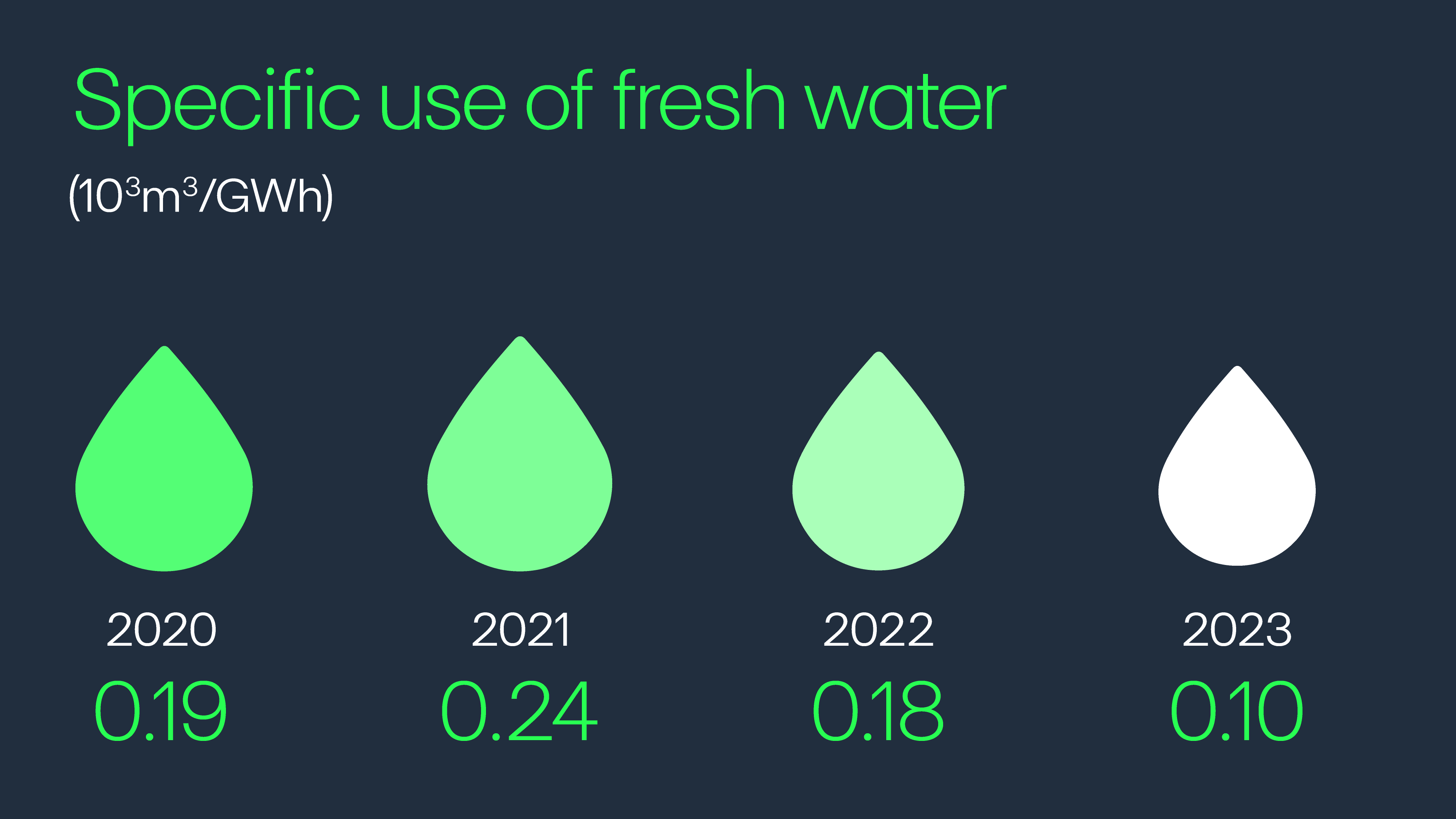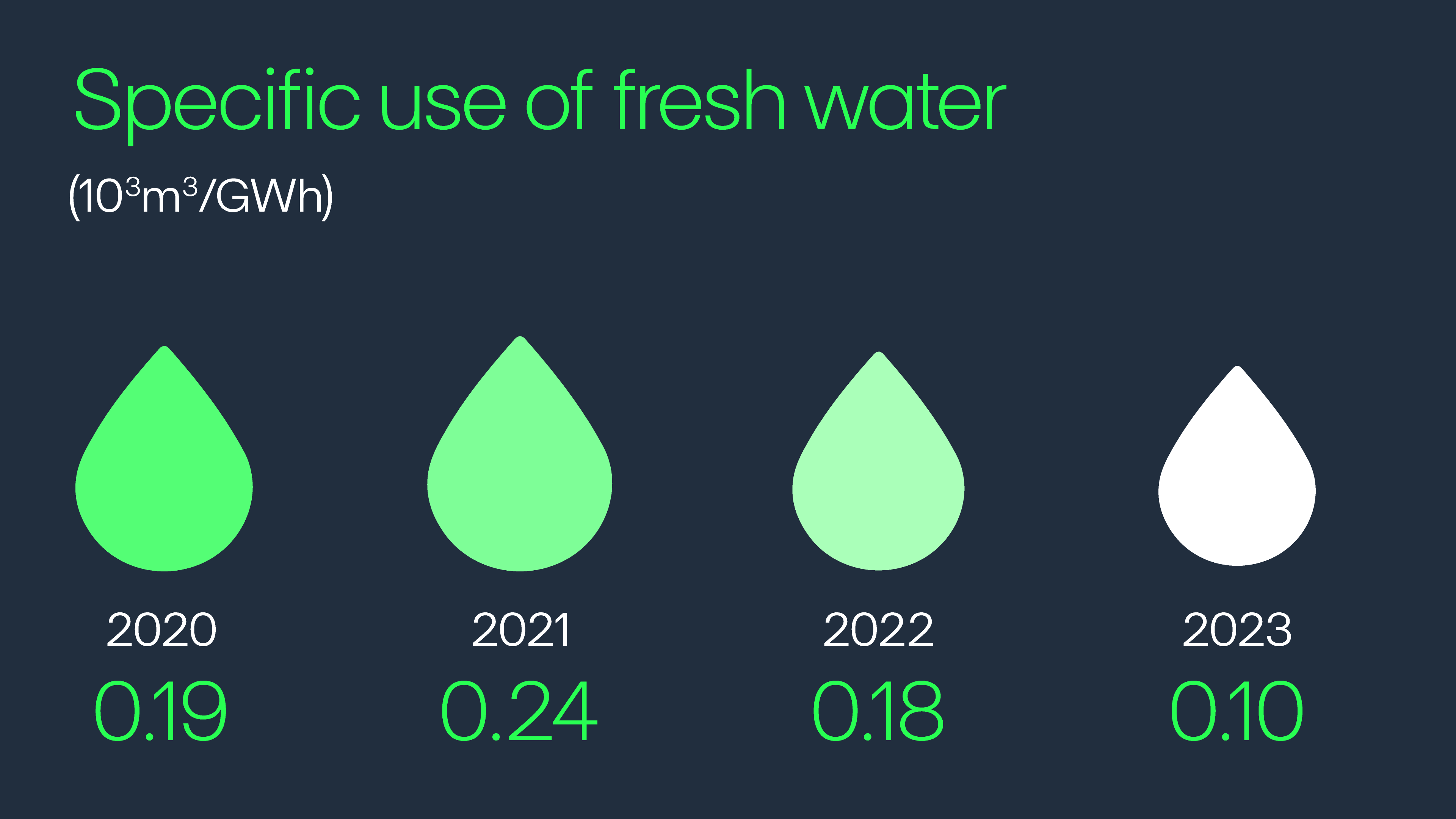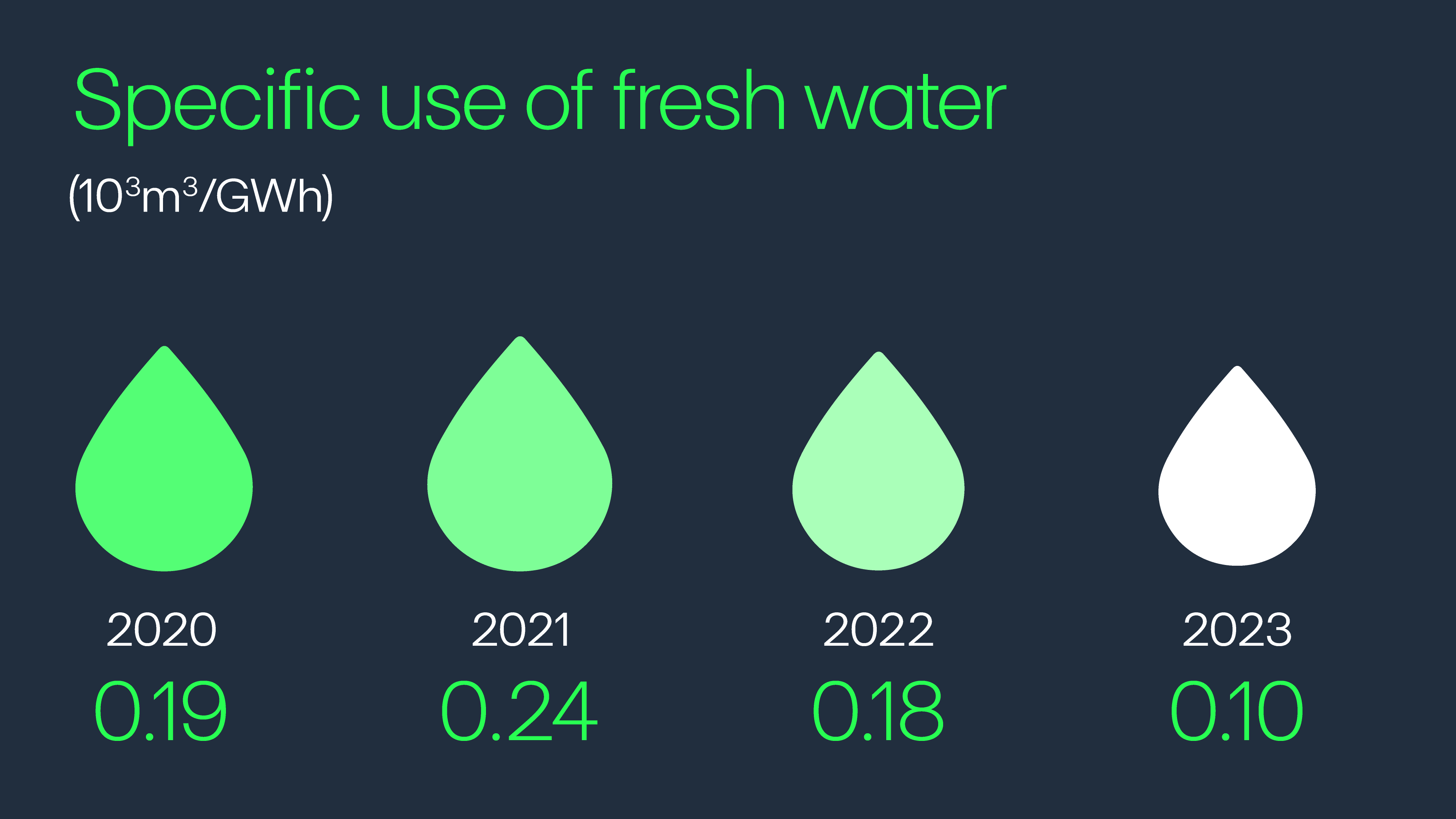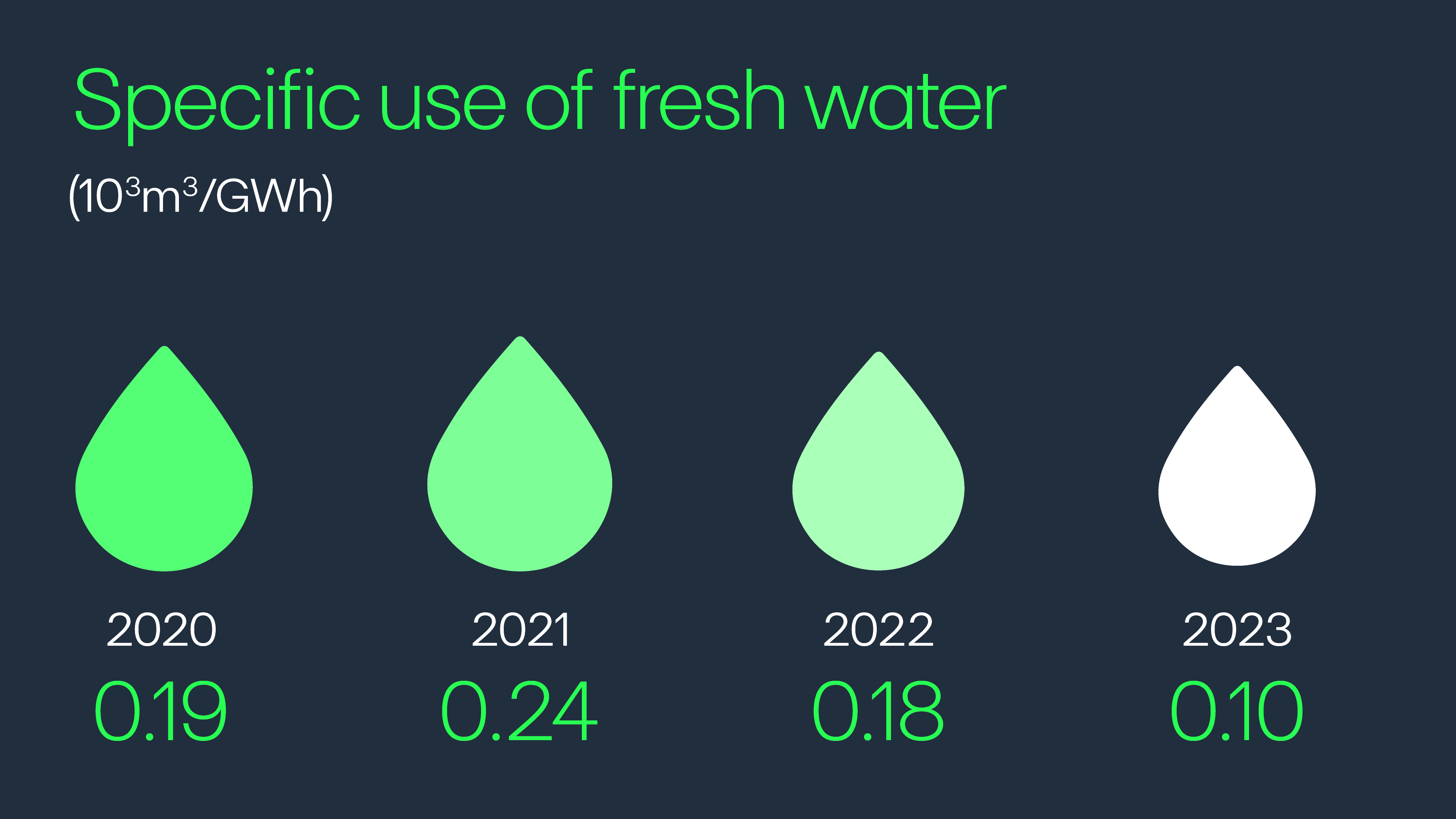Freshwater
Water is an essential resource for life on earth and of irreplaceable environmental, social and economic value.
Worldwide water use has increased by 1% every year since the 1980s, and is expected to keep growing at this pace until 2050, resulting in an overall increase of 20% to 30% compared to today.
Besides global water use growth, there are other challenges such as hydric stress, which affects more than two billion people worldwide, and water pollution, which impacts water quality and ecosystems.
Such challenges stem from the effects of climate change, which introduce uncertainty regarding future water availability. Water-related natural calamities, such as droughts and floods, are becoming more severe, and this trend is expected to continue in the years ahead.
EDP and access to drinking water
EDP recognizes access to drinking water and sanitation as a universal right and is working towards achieving the UN Sustainable Development Goals, in particular SDG 15, by contributing to the sustainable use of freshwater ecosystems.
Water is a critical resource for electricity production, especially in hydroelectric plants and in the cooling circuits of thermoelectric plants.


Hydroelectric dams are strategic reservoirs that store and provide water for several uses, such as agriculture, human consumption, and recreation. The management of water availability according to seasonal fluctuations and the regulation of downstream floods are other functions of these assets.
In the context of the Iberian Peninsula, EDP is taking action to reverse the importance of fossil fuels, such as the sale of six dams in the Douro river basin in 2020, which included three reservoir plants (Foz Tua, Baixo Sabor and Feiticeiro) and three run-of-river plants (Miranda, Bemposta and Picote), with a total of 1.7 GW of installed capacity. In Brazil, at the end of 2022, EDP concluded the sale of the Mascarenhas hydroelectric plant, with 198 MW of installed capacity, located in the state of Espírito Santo. In 2023, EDP Brasil completed the sale of 80% of the Pecém thermoelectric plant.
Water plays an essential role in thermoelectric power plants and, for this reason, we are also committed to making sustainable use of this resource.
EDP regularly monitors water volume and quality at its facilities, identifies water-related business risks, and assesses the impact of its operations on water resources.




